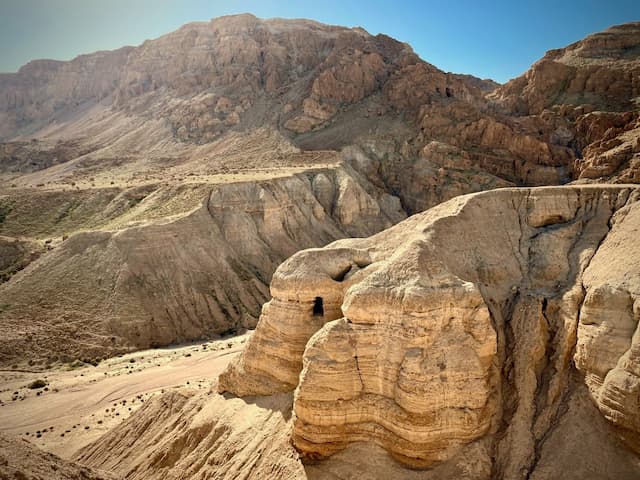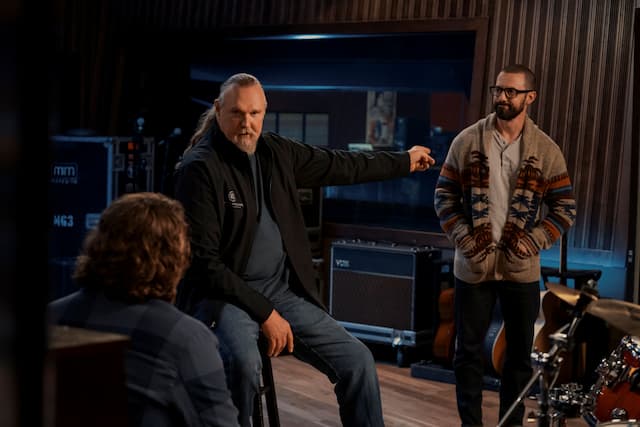Artificial Intelligence Part 1: The Issue of Virtuosity
That Was Then.
A number of years ago, I was returning from Budapest, Hungary, where I had been invited to lead worship for an international group of missionary artists. After what I deemed to be a fruitful but tiring trip, I boarded the plane and prepared to settle into the 10 hour flight back to California. Turns out that the person sitting next to me on this flight was the president/founder of an artificial intelligence (AI) company based in the Silicon Valley. It only took a few minutes of small talk to realize that this man was basically a genius. So over the course of the flight, we had a lively and enlightening discussion about what he did and why.
At one point, we got on the subject of the ethics of AI. I was interested in learning how he saw AI interacting with humanity at an actual human level. He explained to me that, for example, if he were to write the software for a self-driving car, there would have to be a decision tree regarding accidents. If a car had to swerve out of the way of an oncoming truck, he explained, and you could either hit a child in a stroller or an old woman with a walker, they had to write the software for that scenario.
In response, I asked him, “Have you ever consulted with ethicists on this? Or religious leaders, or philosophers, or psychologists?”
He paused thoughtfully—apparently in a moment of epiphany—and then replied, “No.”
In all his knowledge and expertise, it had not occurred to him that there were people who had educated and informed opinions about the implications of his work, people who considered deeply the social and spiritual and cultural consequences of things. And it had not occurred to him to open a dialogue with these experts regarding AI. It was a classic case of technology getting ahead of humanity.
And This Is Now.
Now, that was back in 2017, a million years ago in terms of the speed of Artificial Intelligence. These days, we are deeply affected by all manner of AI: ChatGBT, Deep Fakes, Alexa and Siri, self-driving cars and Roombas, Face Identification, and even algorithms on Spotify and Netflix that recommend our next song or movie. AI has affected everything from what stocks are bought and sold, to how teachers grade their student’s papers, to the conditions upon which nuclear missiles are launched.
As artists, we see artificial intelligence exerting itself everywhere—the visual arts, the literary arts, the cinematic arts, music composition and production, and even how we market our art. Some artists I know have embraced it wholeheartedly. Others are reluctant, even loathsome. There are all sorts of rabbit trails associated with AI, from how original content creators can somehow be identified and compensated, to authorship and ownership of AI-related artworks, to the use of AI in art galleries and competitions, and even to the ownership of one’s own likeness when used in movies and stills. In short—it’s a muddy mess.
Now, it’s not my intention to talk about the myriad different consequences of AI on the arts and artists. Frankly, I’m don’t yet know enough to have an informed opinion on many of these issues. But I thought this post would be the beginning of the dialog. Hence, “Part 1.”
Virtuosity the Victim
As I’ve had dozens of conversations about AI, and read and viewed a variety of sources, the one thing that continues to nag at me is that AI may indeed be the end of virtuosity as we know it.
Virtuosity is defined as great skill in an artistic pursuit. The ability to be an amazing dancer, or a great concert pianist, or a skilled painter or sculptor, or a prolific author or poet, requires a dedication to the craft, practicing and rehearsing, hour after hour after hour. The Latin word for “art” is “tecnicus,” from which we derive the word, “technique.” Great art is something that must be developed and honed in order to attain skill and competency. Musicians must spend much time playing to the metronome, dancers must spend much time bending over the ballet barre, sculptors must develop calluses leaning into the clay. It’s part of our calling.
As a pianist, I know I put in my 10,000 hours of practice and performance and composition, and the payoff is that I am able to articulate music at a level that most people cannot. Until now. AI algorithms will soon be able to create vast swaths of music in all genres, borrowing from the best and worst that’s out there. No longer will it be necessary for a person to learn technique, develop muscle memory, struggle with and master their instrument. Enter a genre, a tempo, a key, and a lyrical theme, and AI will “compose” a song for you. And that is what may be your next big hit.
The same is now true of the visual arts. Describe a setting, a color palette, an action, and AI image generators like Deep Dream or Craiyon will create a masterpiece for you. It’s no longer necessary to learn how to use a paintbrush or understand color theory or perspective. The AI generator will create it for you. It’s certainly fun. But is it…right?
Let me put it this way. Steph Curry can hit a 3-point shot from anywhere on the court. But in order to have mastered this skill, he has spent tens of thousands of hours on the basketball court taking countless shots every day for decades. He has attained virtuosity on the court at the highest levels. But AI short-circuits the need to put in the hours necessary to get to the point where virtuosity is attained. Just like a ten-year-old playing NBA 2K—draining threes and dunking from the free throw line—AI will eventually allow talented but generally unskilled people the ability to “create” masterpieces—without having put in the real work. But would you pay to watch a ten-year-old play virtual basketball? Unfortunately, the answer—at least in the arts—might be yes.
I suspect that there will always be room for the amazingly, uniquely great. The Jacob Colliers of the world will always have a place. But I worry for future generations, those who will be able to create art through “artificial” means, instead of through aptitude, musicianship, technique, and uniqueness. Consider a time in the near future when most music will be created without ever needing a musical instrument. Most visual art will be created without learning to draw. Most movies will be made without actors. Most books will be written without the need to learn the craft of writing. So why bother putting the time into learning how to draw or act or write or play a musical instrument? And perhaps the deeper question: What happens when one is given the ability to do something amazing without having to pay the price to achieve it?
I hope I’m wrong. And I’d love to hear your opinions. I certainly am still trying to develop mine.
For more reading:
If It Wasn’t Created By A Real Artist, Is It Still Art? | Harvard Gazette
A New Era of Music and Its Unintended Consequences | Rick Beato
AI Tools Can Create New Images, But Who Is The Real Artist? | Matt O’Brien, Arijeta Lajka
Art and the 10,000 Hour Rule | Manuel Luz
[Banner photo by Anne Nygård on Unsplash. Upper inset photo is an AI image, author unknown. Lower inset photo is a Van Gogh-inspired Deep Dream image, courtesy of Google.]







